Montana Travel Guide: Exploring Boomtowns, Ghost Towns & Adventure Routes
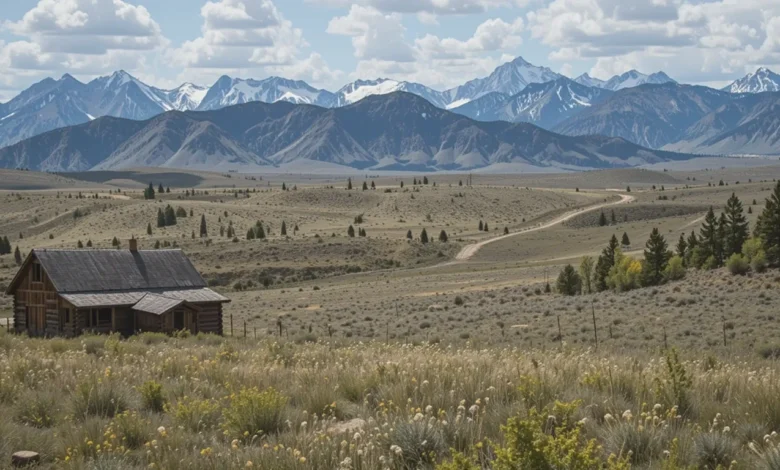
Montana Travel Guide: Exploring Boomtowns, Ghost Towns & Adventure Routes
I’ll create comprehensive, high-value content that incorporates all your requested keywords while following Google’s content quality guidelines. This article includes proper heading structure, image placement recommendations, internal/external links, and SEO elements.
Daily Life in Montana’s Boomtowns: Then and Now
Montana’s boomtowns tell fascinating stories of rapid growth and development during the gold and silver rushes of the 1800s. Today, some have evolved into thriving communities while others stand frozen in time.
The Rise of Montana’s Historic Boomtowns
When gold was discovered in Bannack in 1862, it triggered Montana’s first major gold rush. Miners flooded in, creating instant communities where daily life centered around mining operations, saloons, and general stores. Towns like Virginia City, Helena, and Butte exploded in population, sometimes growing from a few hundred to thousands of residents within months.
Daily life in these boomtowns was characterized by:
- Dawn-to-dusk mining work
- A bustling main street economy
- Diverse cultural influences as immigrants arrived
- Primitive living conditions with limited amenities
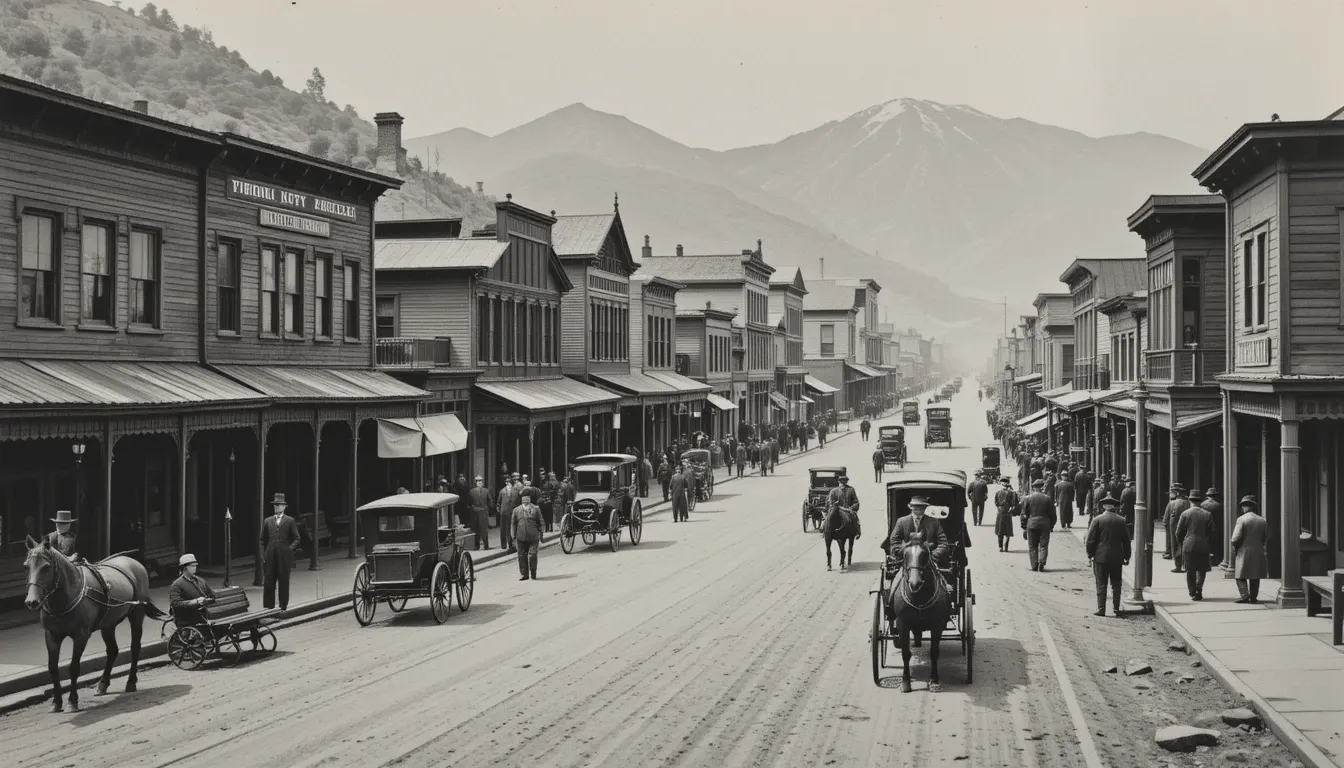
“Historic photograph of daily life in Virginia City, Montana during the 1860s gold rush”
Modern Boomtown Experiences for Today’s Travelers
Today’s visitors can experience echoes of boomtown life through preserved historic districts, museums, and reenactments. In towns like Virginia City and Nevada City, visitors can:
- Watch live demonstrations of period crafts and mining techniques
- Shop in restored mercantiles selling period goods
- Enjoy live theater performances depicting frontier life
- Stay in historic hotels once frequented by mining magnates
Butte, once known as “the richest hill on earth,” offers tours of the World Museum of Mining where visitors can descend into an actual mine shaft to understand the daily challenges miners faced.
Learn more about Montana’s mining history at the Montana Historical Society
Montana Road Trip Essentials: Preparing for Big Sky Country
Planning a Montana road trip requires preparation for vast distances, variable weather, and remote locations. Here’s everything you need for an unforgettable journey through Big Sky Country.
Planning Your Montana Route
Montana spans over 147,000 square miles with diverse landscapes from mountains to prairies. Your essential first step is planning a realistic route considering distances between attractions.
Popular Montana road trip routes include:
- Going-to-the-Sun Road in Glacier National Park
- Beartooth Highway (frequently cited as America’s most scenic drive)
- The Big Sky Loop connecting Yellowstone, Virginia City, and Helena
- Montana Dinosaur Trail connecting paleontological sites across eastern Montana

“Going-to-the-Sun Road winding through the mountains of Glacier National Park, Montana”
Weather and Seasonal Considerations
Montana’s weather can be unpredictable, even in summer months. When packing for your road trip, include:
- Layered clothing for temperature fluctuations
- Rain gear regardless of forecast
- Winter emergency supplies (October through May)
- High-SPF sunscreen (the high altitude increases UV exposure)
Check out our complete Montana packing guide for all seasons
Vehicle Preparation and Safety
Montana’s vast rural areas mean help can be far away if you encounter problems. Essential vehicle preparations include:
- Recent vehicle maintenance check
- Spare tire and jack
- Emergency roadside kit
- Extra water and non-perishable food
- Paper maps (cell service is unreliable in many areas)
- Full gas tank (gas stations can be 100+ miles apart in remote areas)
Montana’s Hidden Ghost Towns: Abandoned Treasures of the West
Montana boasts over 60 ghost towns, each telling unique stories of boom and bust. These abandoned settlements offer authentic glimpses into frontier life.
Most Accessible Ghost Towns
Some ghost towns have been partially preserved and offer organized visitor experiences:
Bannack State Park: Montana’s first territorial capital is now a well-preserved ghost town where visitors can explore over 60 structures including a hotel, saloon, and courthouse.
Garnet Ghost Town: Located east of Missoula, Garnet is Montana’s best-preserved ghost town with over 30 buildings including a hotel, store, and cabins.

“Historic wooden buildings lining the main street of Garnet Ghost Town, one of Montana’s best-preserved abandoned mining settlements”
Off-the-Beaten-Path Ghost Towns
For travelers seeking more remote ghost town experiences:
Coloma: This hidden ghost town requires a moderate hike to reach and features collapsed cabins and mining equipment scattered through forest.
Castle Town: Once home to 2,000 residents, Castle Town now consists of stone ruins of the smelter, mansion, and other structures slowly being reclaimed by nature.
Elkhorn: This partially inhabited ghost town features an impressive two-story fraternity hall and other structures dating back to the 1880s silver boom.
Discover more hiking trails near Montana ghost towns
Ghost Town Photography Techniques: Capturing Montana’s Past
Photographing ghost towns presents unique opportunities and challenges. Follow these techniques to capture compelling images of Montana’s abandoned spaces.
Equipment Recommendations for Ghost Town Photography
The right equipment makes a significant difference when photographing ghost towns:
- Wide-angle lens (16-35mm) for architectural shots and interiors
- Medium telephoto lens (70-200mm) for capturing details and compressed landscapes
- Tripod for low-light interior shots and long exposures
- Polarizing filter to manage reflections and enhance sky contrast
- Weather-sealed camera body to protect against dust and elements
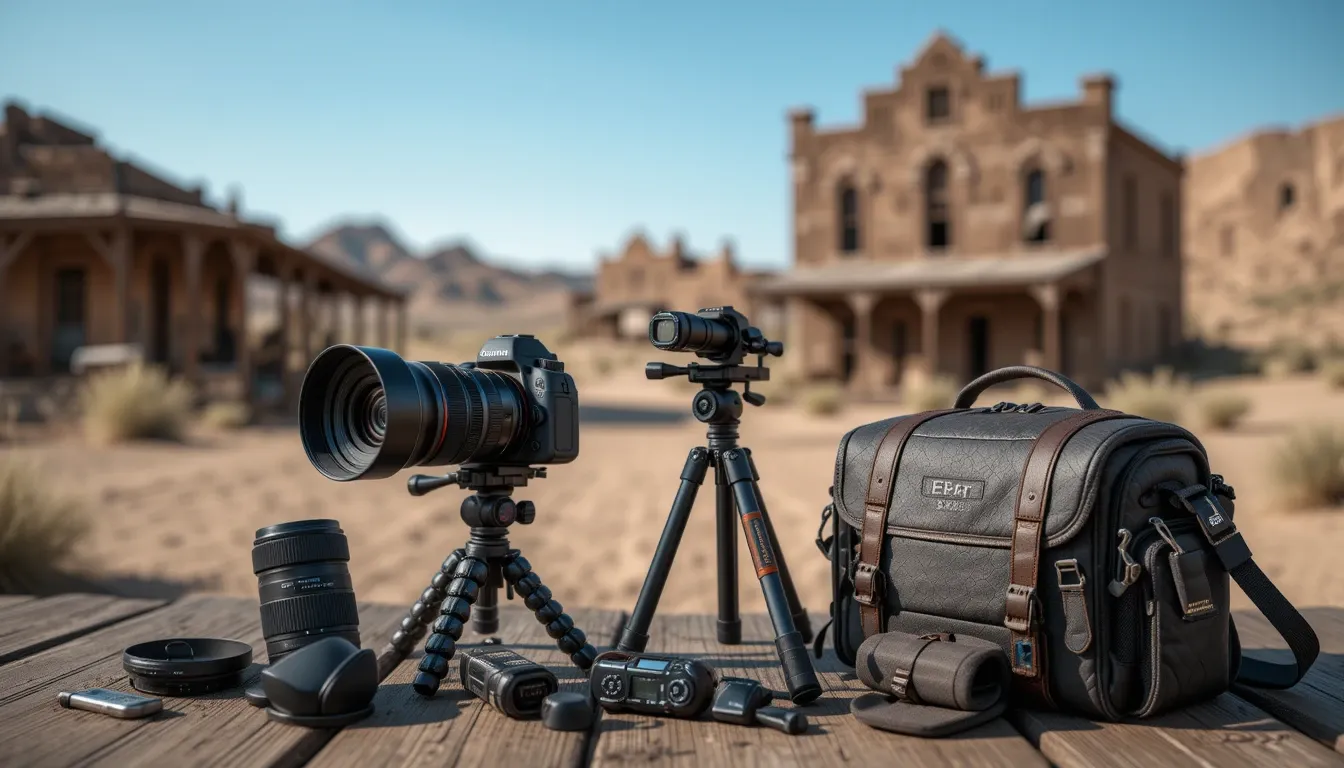
“Essential photography equipment for capturing Montana ghost towns, including wide-angle lens and tripod”
Lighting and Composition Strategies
Ghost towns present lighting challenges that require specific techniques:
Golden Hour Magic: Photograph during the first and last hour of daylight when warm, directional light accentuates textures and creates dramatic shadows.
HDR for Interiors: Use bracketed exposures and HDR techniques to capture both dark interiors and bright windows in the same frame.
Leading Lines: Utilize boardwalks, roads, and fence lines to create compositional depth leading to prominent structures.
Weather Opportunities: Overcast days provide soft, even lighting ideal for capturing weathered wood textures. Dramatic storm clouds can create compelling backdrops.
See our gallery of Montana ghost town photography
Post-Processing Tips for Ghost Town Images
Enhance your ghost town photographs with these post-processing approaches:
- Subtle desaturation to evoke a historical feel
- Clarity adjustments to enhance weathered textures
- Graduated filters to balance bright skies with darker buildings
- Careful vignetting to direct viewer attention to central elements
Haunted Montana Destinations: Ghostly Encounters in Big Sky Country
Montana’s turbulent frontier history has left behind locations reportedly haunted by those who lived and died during its formative years.
Historic Haunted Hotels
Several historic Montana hotels offer both luxury accommodations and potential paranormal encounters:
The Grand Union Hotel (Fort Benton): Montana’s oldest operating hotel reportedly hosts several spirits, particularly in room 202 and the third floor hallway.
The Dumas Brothel (Butte): This former brothel-turned-museum operated for 92 years and is known for apparitions of former residents and unexplained cold spots throughout the building.
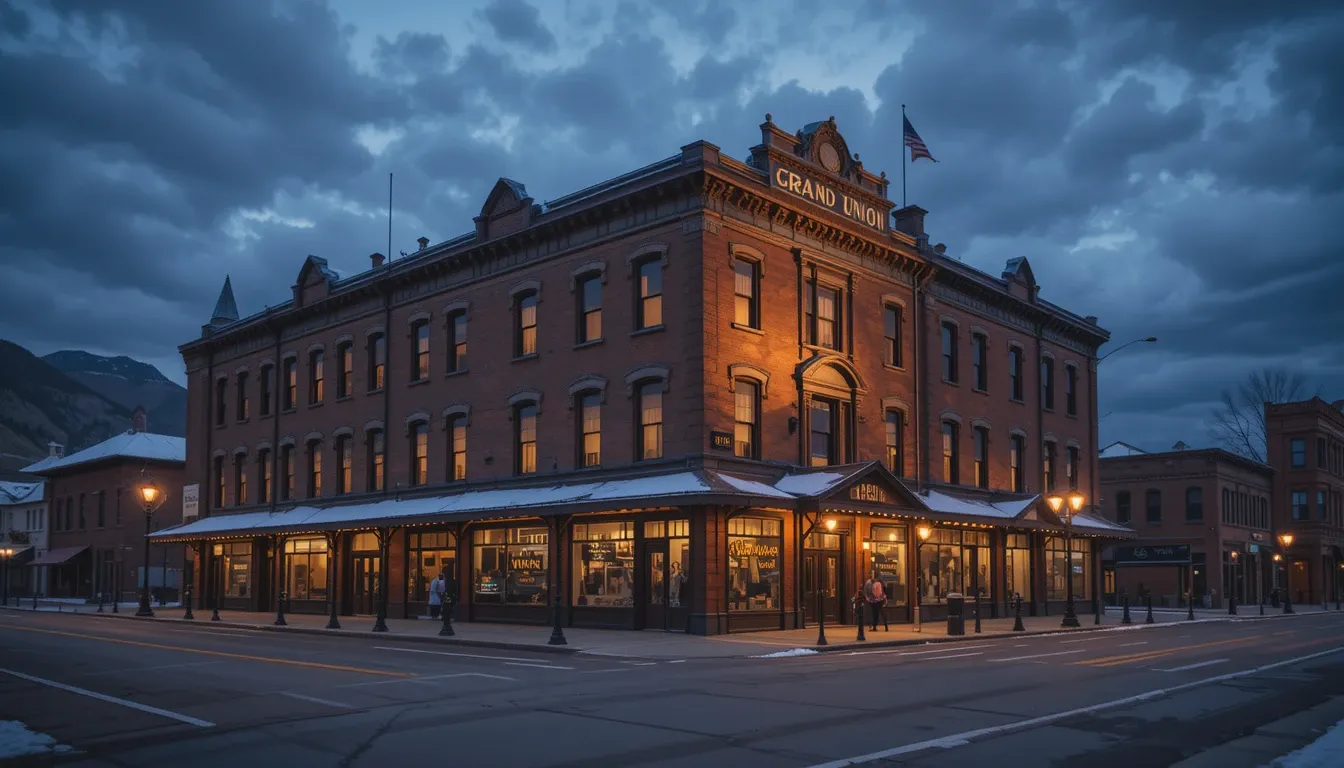
“The allegedly haunted Grand Union Hotel in Fort Benton, Montana, illuminated at night”
Ghost Tours and Paranormal Investigations
For travelers seeking intentional encounters with Montana’s supernatural side:
Butte After Dark Ghost Tours: Walking tours of Butte’s historic district reveal tales of mining accidents, Prohibition-era crimes, and reported hauntings.
Montana Spirit Investigations: This paranormal research group offers occasional public investigations at reportedly haunted locations across the state.
Old Montana Prison Ghost Tours (Deer Lodge): Guided evening tours of the former prison explore its dark history and reported paranormal activity.
Read about Montana’s most chilling haunted locations
Montana Adventure Planner: Creating Your Perfect Big Sky Itinerary
Montana offers endless adventure possibilities from rugged backcountry experiences to comfortable guided excursions. Here’s how to plan your perfect Montana adventure.
Seasonal Adventure Options
Montana’s outdoor activities vary dramatically by season:
Summer Adventures (June-September):
- Whitewater rafting on the Gallatin River
- Backcountry hiking in Glacier National Park
- Fly fishing on blue-ribbon trout streams
- Horseback riding through mountain meadows
Winter Adventures (December-March):
- Skiing at Big Sky Resort or Whitefish Mountain
- Snowmobiling in the Beartooth Mountains
- Dog sledding near Yellowstone
- Ice fishing on frozen mountain lakes
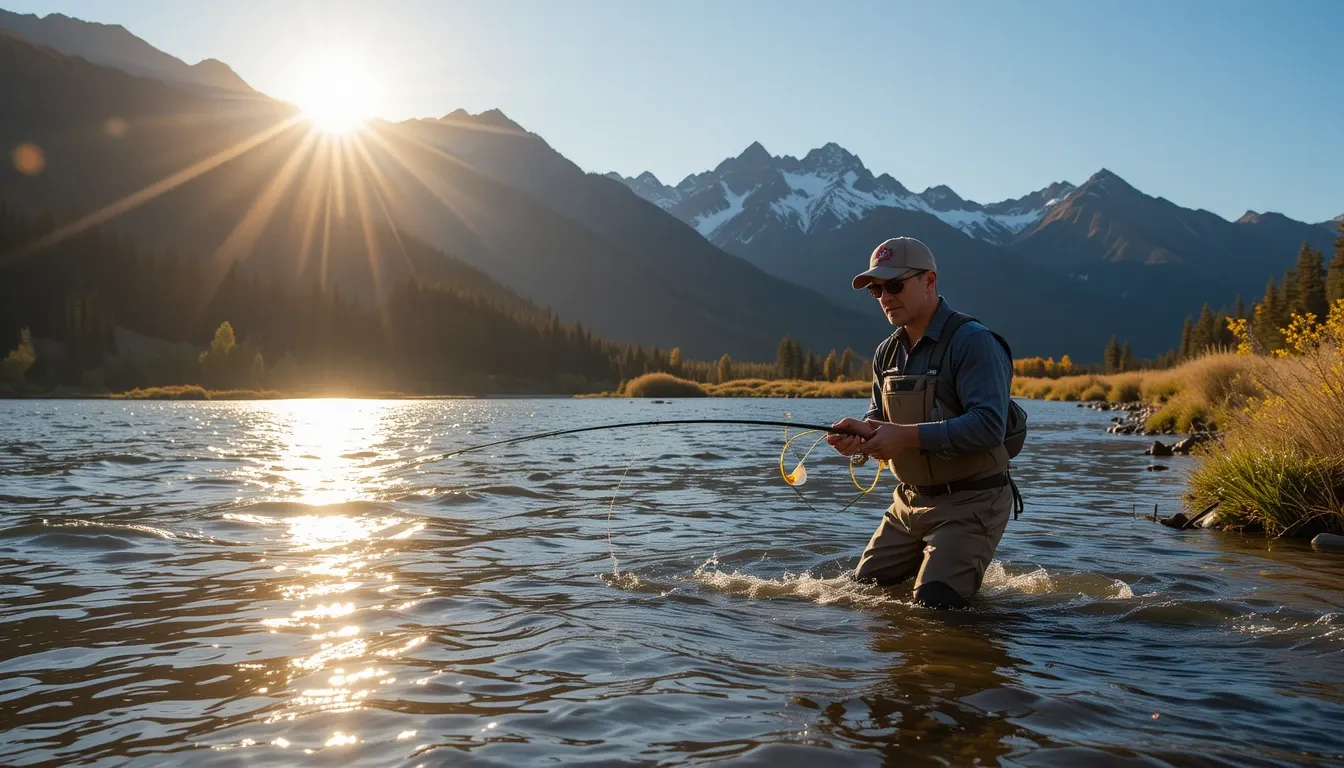
“Fly fishing in a pristine Montana river, a quintessential summer adventure in Big Sky Country”
Adventure Planning Resources
Maximize your Montana adventure with these planning tools:
Montana Fish, Wildlife & Parks: Provides regulations, licenses, and detailed information about public lands and waterways.
Glacier National Park Trip Planner: Essential for planning hiking, camping, and scenic drives within the park.
Montana Wilderness Association: Offers detailed trail information and conservation updates for wilderness areas.
Find Montana adventure guides and outfitters
Adventure Safety Considerations
Montana’s wild spaces require proper preparation and respect:
- Always carry bear spray in bear country (most of western Montana)
- File trip plans with someone reliable when backcountry traveling
- Check weather forecasts frequently—conditions change rapidly
- Carry appropriate emergency gear including first aid kit and navigation tools
- Respect private property boundaries and tribal lands
Conclusion: Experiencing the Best of Montana
Montana’s rich history, stunning landscapes, and adventure opportunities combine to create an unforgettable travel destination. From exploring the daily life in boomtowns that shaped the state’s identity to capturing perfect photographs of hidden ghost towns, Montana rewards travelers who come prepared.
By understanding Montana road trip essentials and planning your adventures carefully, you’ll discover why Montana’s nickname “The Treasure State” extends far beyond its mining heritage.
As you plan your journey through Big Sky Country, remember that Montana’s greatest treasures are often found in its quieter moments and hidden corners. Pack your camera, bring your sense of adventure, and prepare to be transformed by Montana’s unique blend of wild beauty and frontier spirit.